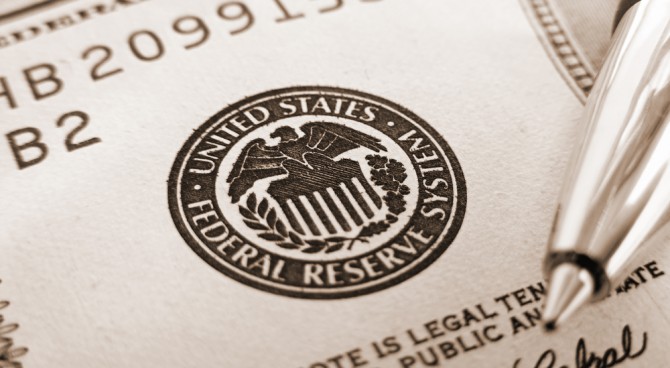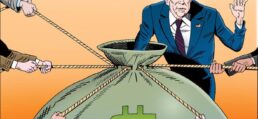If they stay united, House Republicans can use the power of the purse to restrain unilateral executive action.
July 13, 2023 5:38 pm ET
Before the rise of the regulatory state, America’s economic exceptionalism flowed from clear constitutional boundaries between the spheres of individual freedom and government power. All major federal initiatives were circumscribed by the Constitution and required legislation by both houses of Congress followed by the president’s signature. With rare exceptions, major policy changes required broad bipartisan support to gain a majority in the House and overcome a potential filibuster in the Senate. The result was economic and political stability enforced by checks and balances. While political inertia frustrated elected officials, the benefits of unparalleled economic certainty and unmatched freedom to work, save and invest delivered unequaled prosperity.
With the rise of the regulatory state, every sector of the economy can now be significantly altered by presidential action through executive initiatives with little basis in law. Checked only by the delayed restraints imposed by the courts, presidents now assert unilateral powers so that presidential elections alone produce dramatic shifts in public policy.
Based on almost every conceivable measure of federal power, America’s historic economic certainty and the constitutional system of checks and balances that provides it are under siege by President Joe Biden’s “whole government” regulatory onslaught. In a closely divided Congress, timely defense of our constitutional system and limited government now depends on the ability of a five-vote House Republican majority to restore the power of the purse.
With the national debt issue postponed until after the 2024 elections and aggregate spending capped for the next two fiscal years, the Republican House must now decide not only what to fund but also what not to fund. Since the power of the purse is the power to ban, limit and restrict the use of federal funds, it embodies the power to restrain executive action.
Whereas the risk of default on the public debt was overhyped, the economic risk of Mr. Biden’s aggressive assertion of regulatory power seldom is mentioned in any analysis of productivity growth falling to a 75-year low, real wage declines and the lurking recession. Barack Obama’s regulatory excesses produced stagnation and a failed recovery, but the crippling cost of Mr. Biden’s regulatory burden could trigger our first regulatory recession.
Two famous examples of the power of the purse to limit executive action are the 1976 Hyde amendment prohibiting federal funding for abortion and the 1976 Byrd amendment banning federal funding for forced busing. On taxpayer funding for abortion, agencies were using executive authority to implement policy Congress had never legislated. The American people strongly opposed taxpayer funding for abortion as did then Sen. Biden. Congress used the power of the purse to prohibit the use of federal funding for abortion.
Forced busing evolved from a policy to promote the desegregation of public schools. As the monetary and time cost of cross-county busing grew, public opposition swelled even in the black community, and in 1976 Sen. Robert Byrd of West Virginia used the power of the purse to defund forced busing. Sen. Biden voted for the prohibition and later joined Sen. Tom Eagleton to author the 1977 amendment that strengthened the original Byrd amendment.
Given their five-vote majority, House Republicans must pick their targets wisely. The limits on spending must unite Republicans and be overwhelmingly popular among the American people. Any area where Democrats have shown support for limiting the president’s executive authority should be fertile ground for amendments.
An obvious target is Mr. Biden’s actions circumventing Congress and agreeing with the Organization for Economic Cooperation and Development to impose an international minimum tax on large international companies, most of which are owned by American investors. Remarkably, the Biden administration agreed to let foreign governments tax U.S. companies on their U.S. earnings if Congress refuses to adopt the minimum tax. In this extraordinary circumvention of the Constitution, the Biden administration has attempted to use an international agreement that Congress never approved to force Congress to raise taxes.
This follows similar administrative practices of using European regulations and antitrust actions to impose policies on U.S. companies that our courts have rejected. Fortunately, the State, Foreign Operations, and Related Programs Appropriations Bill as reported by the House subcommittee terminates all U.S. funding for the OECD. Congress should further disavow the tax agreement and, using the power of the House to legislate on appropriations bills, mandate retaliation against any nation attempting to tax U.S. companies on U.S. earnings.
Lawmakers can wield the power of the purse to make regulatory agencies follow the law, such as requiring that Federal Trade Commission funds are used solely to promote consumer welfare. Securities and Exchange Commission funding must hinge on the agency promoting the stated goals of U.S. securities laws, not the administration’s environmental goals. The power of the purse can be used to ensure that the Labor Department requires pension funds to invest “solely” and “exclusively”—as the law stipulates—in the financial interest of retirees, not to promote ESG goals.
Congress must use the power of the purse to strengthen national defense. Today, the Defense Department spends billions of dollars on social spending that has little or nothing to do with national defense, such as zero-emissions vehicles, offshore wind energy R&D, EV charging stations, sensitivity training, transgender treatments, and general education funding. Given the budget limitations we face and the dangerous world we confront, Congress’s plundering of national defense should end.
The nation needs a replay of the debt-limit unity among House Republicans to bring the Biden imperial presidency back under constitutional control. As James Madison, the father of the Constitution, envisioned it, the power of the purse was “the most complete and effectual weapon with which any constitution can arm the immediate representatives of the people, for obtaining a redress of every grievance.”
Mr. Gramm, a former chairman of the Senate Banking Committee, is a visiting scholar at the American Enterprise Institute. Mr. Solon is an adviser to US Policy Metrics.
Appeared in the July 14, 2023, print edition as ‘Congress Can Halt Biden’s Rule by Regulation’.





